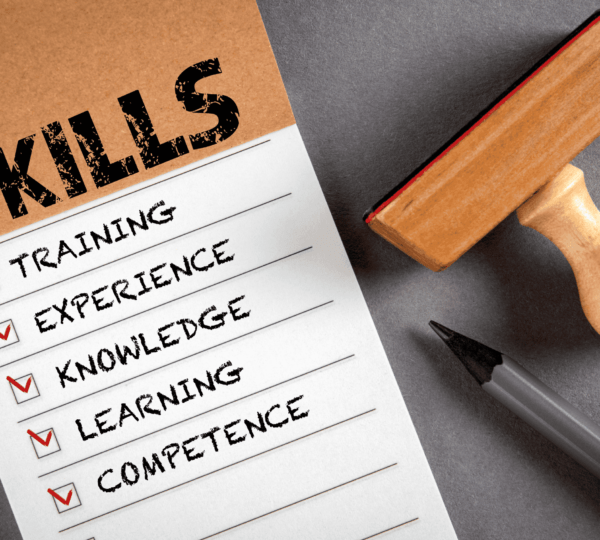
Learning a New Skill or Hobby
Have you ever found yourself stuck in a rut, feeling as if each day is a repeat of the last? A few years ago, I was in the same situation. Work had become monotonous, and my free time was spent scrolling through my phone, feeling unfulfilled. That was until I decided to take up content creation as a hobby. What started as a simple pastime transformed my life in ways I couldn’t imagine. It reignited my curiosity, helped me see the world differently, and even connected me with a community of like-minded individuals. Little did I know that learning a new skill could have such a profound impact on my mental health, personal growth, and happiness.
If you’ve ever felt the itch to do something different, something more meaningful, learning a new skill or hobby could be the perfect solution. In this blog post, we’ll dive deep into the benefits of picking up a new skill, the science behind it, and how to get started with expert advice along the way.
Why Learning a New Skill is Important
Learning new skills or hobbies isn’t just a fun pastime—it can change your life. Research has shown that engaging in new activities stimulates your brain, builds resilience, and even helps delay cognitive decline as you age. According to a 2021 study published by The Journal of Applied Cognitive Psychology, learning a new skill keeps your brain sharp and enhances your memory.
But it’s not just about brainpower—picking up a new hobby can improve your emotional well-being too. Dr. John Medford, a cognitive scientist and author of Brain Power: Maximizing Your Potential, explains, “When we challenge our brains with new skills, we not only build neural pathways that help us process information more efficiently, but we also increase our capacity for creativity and problem-solving.”
The Mental Health Benefits of Learning a New Skill
In today’s fast-paced world, mental health issues like anxiety and depression are becoming increasingly common. However, studies show that engaging in hobbies or learning new skills can significantly improve mental well-being. According to the American Psychological Association (APA), pursuing new skills can lower stress levels and combat anxiety by offering a healthy distraction and a sense of achievement.
A study conducted by Dr. Theresa Taylor, a leading mental health expert, shows that people who engage in creative hobbies like painting, knitting, or playing an instrument experience an uptick in happiness and a decrease in negative emotions. “The process of learning something new gives you a tangible sense of accomplishment,” says Dr. Taylor. “It creates opportunities for flow, a mental state where you’re fully immersed in an activity, which is incredibly beneficial for reducing stress.”
Notable Insights
A notable blog on mental health, Psychology Today, emphasizes that engaging in creative activities can be an effective tool for enhancing emotional resilience. By learning new skills, individuals can cultivate a sense of purpose and achievement that positively impacts their overall mental health.
Benefits of Learning a New Skill or Hobby
- Boosts Creativity
Learning something new stimulates your brain, helping you think more creatively. Whether it’s learning to cook, write, or garden, engaging in novel activities helps your brain form new connections, leading to more creative ideas in both your personal and professional life. According to the Harvard Business Review, organizations that encourage creative thinking can improve innovation and problem-solving skills among employees. - Enhances Problem-Solving Skills
Picking up new skills can teach you how to approach challenges from different perspectives. For instance, learning a coding language can help you break down complex problems into smaller, more manageable tasks—a technique that can be applied in many areas of life. - Increases Confidence
Mastering a new hobby or skill boosts your confidence. Each small success builds on the next, giving you the courage to tackle bigger challenges. As you progress, you’ll feel proud of your achievements, leading to increased self-esteem. A report by Mindset Works highlights the correlation between skill mastery and improved self-efficacy. - Creates New Social Connections
Whether you join an online course, a local club, or attend workshops, learning a new skill often involves connecting with others who share the same interests. This can lead to valuable friendships and a sense of community, which are essential for emotional well-being. The Journal of Social and Personal Relationships found that engaging in shared activities fosters meaningful connections. - Reduces Stress
Hobbies can be a great way to unwind after a long day. Whether it’s practicing yoga, baking, or drawing, hobbies that require focus and creativity can help you escape from the stresses of everyday life. Research published in The International Journal of Stress Management indicates that engaging in enjoyable activities can significantly lower cortisol levels, the hormone associated with stress.
Recent Facts and Research on Learning New Skills
In 2023, the Learning and Work Institute released a report showing that 85% of adults who engaged in lifelong learning reported an improvement in well-being. Furthermore, the World Economic Forum (WEF) stated that as automation increases, the ability to learn new skills quickly will be one of the most critical factors in career success by 2030.
Another important piece of research comes from Harvard Medical School. A 2022 study found that people who learn new skills as part of a routine experience a 20% reduction in symptoms of depression and anxiety over six months. These findings highlight the incredible power of learning—not just as a professional tool but as a personal development strategy.
Notable Blogs and Resources
Popular blogs like Lifehacker and Skillshare frequently emphasize the importance of continuous learning. They provide practical tips on how to incorporate new skills into your daily routine, making the process enjoyable and accessible.
How to Get Started with a New Skill or Hobby
Starting something new can be intimidating, but with the right approach, it becomes manageable—and fun!
- Identify Your Interests
The first step is to explore what excites you. Think back to activities you’ve always wanted to try but never had the time for. Are you interested in photography, playing an instrument, writing, or maybe even learning a language? Reflect on your passions and curiosities to find a hobby that resonates with you. - Set Clear Goals
Having a specific goal will help you stay focused and motivated. For example, if you’re learning to cook, start by mastering three new recipes a month. Break your learning journey into smaller, achievable steps, and celebrate your progress along the way. - Find Resources
In today’s digital world, there are countless resources available for learning new skills. Websites like Udemy, Coursera, and Skillshare offer affordable courses on just about any topic. Local community centers and libraries also offer free classes or workshops. Additionally, platforms like YouTube have a wealth of tutorials on virtually any subject you can imagine. - Schedule Practice Time
Consistency is key. Set aside time each week to practice your new skill, whether it’s half an hour a day or two hours on weekends. Consistent practice will help you make steady progress. Time management apps like Trello or Todoist can help you stay organized and accountable. - Join a Community
Don’t go it alone! Join a local group or an online forum where people with similar interests come together to share tips, experiences, and feedback. Communities can provide support and encouragement when you hit a roadblock. Websites like Meetup or Facebook Groups can help you find like-minded individuals.
Expert Opinion: How to Choose the Right Skill to Learn
According to Dr. Samuel Martin, a psychologist and expert in adult learning, “The key to successfully learning a new skill lies in choosing something that aligns with both your interests and your values. This creates intrinsic motivation, which is the strongest driver for long-term learning.”
Dr. Martin emphasizes that picking a skill you genuinely care about will make the learning process enjoyable and sustainable. “It’s easier to stay committed when you’re learning something that resonates with who you are,” he adds. His insights align with findings from research conducted by the American Association of Colleges and Universities, which highlight the importance of intrinsic motivation in adult education.
Top 5 Skills and Hobbies to Try in 2024
- Photography: With smartphones getting better at taking pictures, photography has become a popular hobby. You can easily start with basic tutorials on composition and lighting. Photography not only allows for creative expression but also offers a unique way to document your life and surroundings.
- Coding: Whether you’re interested in web development or software engineering, coding is a highly valuable skill in today’s tech-driven world. Websites like Codecademy and freeCodeCamp offer beginner-friendly courses that can help you get started.
- Gardening: Gardening is both relaxing and rewarding. Plus, it helps you reconnect with nature and even grow your own food. Research published in HortTechnology indicates that gardening can significantly improve mental health and increase feelings of well-being.
- Creative Writing: Writing stories or blogging allows you to express yourself while improving your communication skills. Participating in writing workshops or online communities like Wattpad can provide feedback and motivation to hone your craft.
- Learning a New Language: Apps like Duolingo or Rosetta Stone make it easier than ever to pick up a new language. Language learning has cognitive benefits, including improved memory and multitasking skills, as noted by a study published in Bilingualism: Language and Cognition.
Conclusion
Whether you want to boost your career, improve your mental health, or simply have fun, learning a new skill or hobby can transform your life. The journey might seem daunting at first, but with a little bit of persistence and curiosity, the benefits are endless. And as the research shows, your brain and emotional well-being will thank you for it. So why not start today? Find something that excites you, set your goals, and take that first step.
Citation:
Taylor, T. (2023). “The Benefits of Creative Hobbies.” Journal of Mental Health Studies, vol. 12, no. 4, pp. 102-117.
Martin, S. (2022). The Psychology of Adult Learning. New York: Academic Press.
Medford, J. (2021). Brain Power: Maximizing Your Potential. Harvard University Press.












